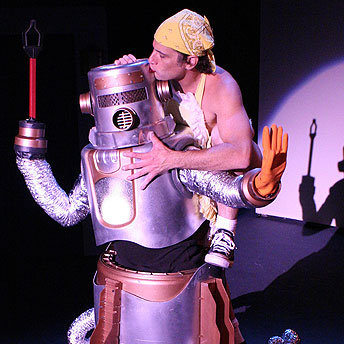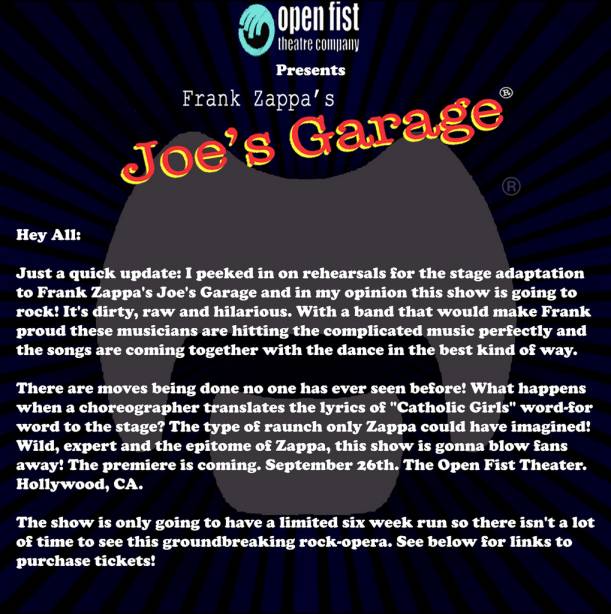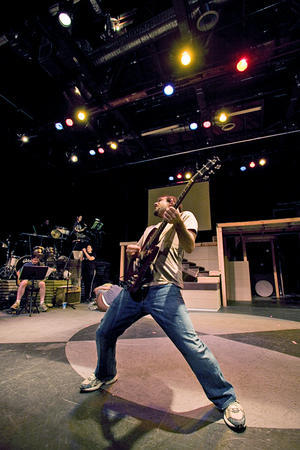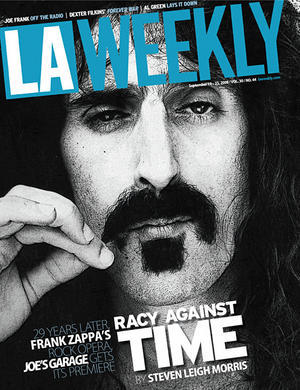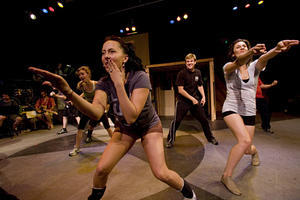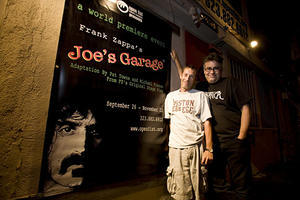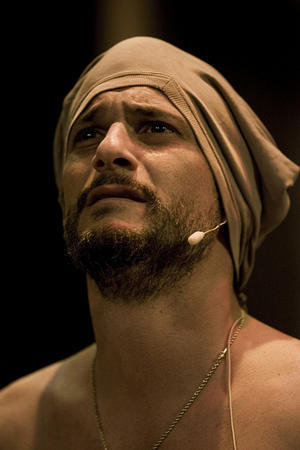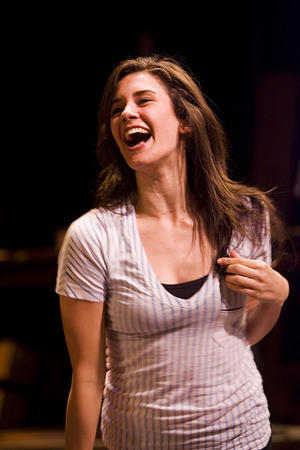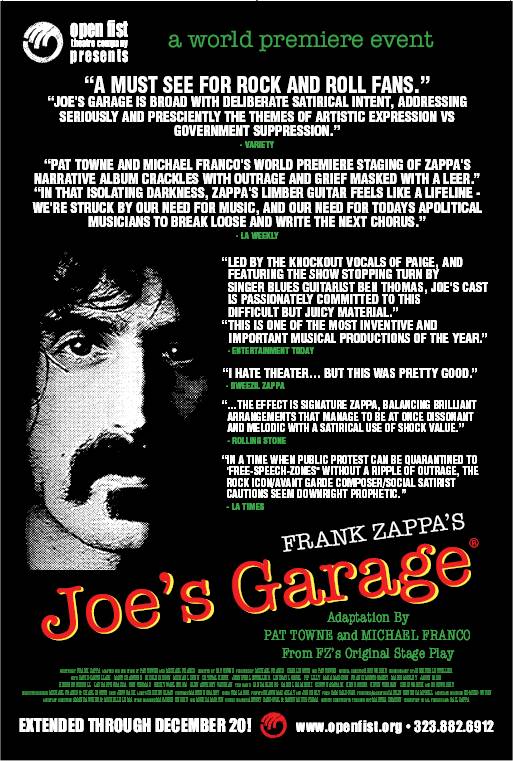|
Six
years after Zappa completed it, the U.S. Senate held hearings on a
proposal by Tipper Gore's Parents Music Resource Center (PMRC) to put
warning labels on rock-music CDs and videos. Gore had been offended by
the lyrics in the Prince song "Darling Nikki": "I met her
in a hotel lobby, masturbating with a magazine . ..." Children,
said the PMRC, needed to be protected from sexually provocative lyrics.
Not
surprisingly, Zappa, a satirist, celebrity rock musician and respected
avant-garde composer, testified as an opposition witness (with John
Denver and Twisted Sister's Dee Snider), describing the PMRC proposal as
"an ill-conceived piece of nonsense, which fails to deliver any
real benefits to children [and] infringes on the civil liberties of
people who are not children."
The
next year, 1986, Zappa appeared on CNN's Crossfire, with so-called
leftist journalist Tom Braden (a former employee of the CIA's
International Organizations Division), conservative columnist Robert
Novak and John Lofton of the right-leaning Washington Times. In a
contentious conversation, Zappa revealed the prescience that makes Joe's
Garage as relevant as the day it was written:
Lofton:
Do you support records that promote incest as just another kind of sex,
or in some instances it might even be preferable? Do you agree with
that?
Zappa:
No I don't agree with it. I don't have any interest in incest ... but I
didn't realize that incest was such a terrible problem in the United
States that we suddenly need government intervention ...
Lofton:
Does the government have any purpose, Frank?
Zappa:
Yeah, it has a number of purposes ... how about national defense?
Lofton:
I consider this national defense, pal! Our families are under attack by
people like you, with these lyrics.
Braden:
John, you don't have to buy them.
Zappa:
Can I make a statement about national defense? The biggest threat to
America today is not communism, it's moving America toward a fascist
theocracy, and everything that's happened during the Reagan
administration is steering us right down that pipe.
Novak:
... Do you really think ... in this country, with the permissiveness,
that we are moving toward a fascist theocracy?
Zappa:
You bet we are, buddy.
[Lofton
and Novak laugh derisively.]
Braden:
One example of a fascist theocracy?
Zappa:
When you have a government that prefers a certain moral code derived
from a certain religion, and that moral code turns into legislation to
suit one certain religious point of view, and if that code happens to be
very, very right wing, almost toward Attila the Hun ...
Lofton:
Then you are an anarchist. Every form of civil government is based on
some kind of morality, Frank.
Zappa:
Morality in terms of behavior, not in terms of theology.
The
ideas in this debate form the crux of the ribald cultural satire in
Joe's Garage, which will have its world premiere on September 26 at the
Open Fist Theater. The play opens with an Orwellian "Central
Scrutinizer," a large robotic puppet who speaks through a megaphone
and whose job is to enforce laws "that haven't yet been
passed." A local policeman counsels Joe to drop his music and
engage in more church activities, but Joe's sweet Catholic girlfriend,
named Mary (of course), abandons him for a backstage pass to see another
band. After following that band on tour and after being used as a sex
toy by the band's roadies, the exhausted Mary is dumped in Miami, where
she enters a wet-T-shirt contest to raise enough money to get home.
When
Joe learns of her plight, he goes into a funk of depression, contracts
venereal disease, and seeks religion - at the door of L. Ron Hoover and
his First Church of Appliantology - to pull him back up. Membership in
the church costs Joe his life's savings, and he is ordered "into
the closet" in order to find salvation by having sex with home
appliances - so much more safe and titillating than with human beings.
There's a three-way orgy between Joe, an appliance named Sy Borg and a
"modified Gay Bob Doll"; Joe accidentally destroys Sy Borg's
circuitry during a golden shower episode and is imprisoned for being
unable to pay for Sy's repair. In prison, Joe is gang-raped by record
executives and other riffraff. He eventually emerges into a new world,
where music has been banned, but he does land a good job in a muffin
factory.
Among
L.A.'s small theaters, Open Fist is comparatively spacious. Situated
within a former warehouse, it has an expansive, freshly painted lobby,
tall ceilings and audience seating on a wide bank of risers. On August
18 - one month to the day before the first preview of Joe's Garage - the
stage is lit by overhanging fluorescents, because the lighting plot
hasn't yet been installed; instruments hang from pipes, with cords
dangling, waiting to be focused and plugged in.
|
|
The
company forms two lines of six. They're dressed in leotards and sweats;
some wear kneepads. Each actor crosses toward the opposite line of
actors, walking pigeon-toed, stepping on a beat that Sandoval claps out
with his hands. Among the goals is to sink into each step, to complete
the gesture, regardless of its contortion, and to do it on time. This is
a warm-up for the brutal choreography that's to come.
Now
they're in a circle. Keeping their torsos erect, they're to dip with
their knees and then return up on eight counts that are clapped out,
then 10 counts - dipping slowly is more stressful. Now they execute a
clean jump, a quick turn and an exclamation of "ha!" - which
releases the accrued stress.
After
a 10-minute break, director Patrick Towne and choreographer Jennifer
Lettelleir take over. Towne's co-writer/producer, Michael Franco,
crosses the front of the stage, speaking into a flashing Bluetooth cell
phone in his ear.
Jason
Paige portrays musician Joe, and the cast is rehearsing a scene from his
suburban garage, where the solipsistic bliss of his music is interrupted
by a police squad responding to an excessive-noise complaint. Herbert
Russell, a gifted, roly-poly comedian, leads the squad, which strides
in, with mimed weapons drawn. But this isn't an episode of Law &
Order - it's closer to the Keystone Cops.
As
they drag Joe away, Towne is concerned that the police exit is too
realistic and too sloppy.
"Stride,
stride," he barks at the cops while pacing in the risers.
"Stride till the thighs hurt."
Now
they're working on the song "Catholic Girls," featuring Joe's
girlfriend, Mary, played by wide-eyed Becky Wahlstrom with heartbreaking
naiveté.
David
Castellani, as Mary's priest, Father Riley, repeats with exaggerated
nasality the one-line refrain "Catholic girls" - between which
the chorus of singer-dancers toss in one-line commentaries:
"Catholic girls/With a tiny little mustache/Do you know how they
go? In the rectory basement/Father Riley's a fairy/But it don't bother
Mary."
Choreographer
Lettelleir is working on jazzy moves for the chorus, trying to capture
the blend of perkiness and perversion at the heart of Joe's Garage. They
work through the moves with house accompanist Scott Nagatani, and then
with both the piano and CD playing simultaneously.
Joe
croons, "When they learn how to blow" - answered by Father
Riley, "They're learning to blow/All the Catholic boys!"
Lettelleir
jumps in to choreograph stylized fellatio - considerably larger than
life - to a chorus line of young women on their knees, mouths gaping
open like hungry carp. They bear animated expressions of disgust and
alarm, bobbing necks accompanied by fake gagging and spitting that
Lettelleir is working to coordinate. Wahlstrom, also on her knees with
her back to the audience, sways her head to and fro. One of her wrists
flings away some imagined goo, right on the song's beat, then the other
wrist. A few measures later, all will repeat. It's clear that the
musical's point of view is carried largely by the choreography, which
depicts porn's generic eroticism as part of a numbing machine.
Towne
says he's lost a couple of actors due to religious conflicts with the
play. "'Why are there so many blowjobs, so much sexuality?' they
asked. So we had a meeting, I tried to explain the satire. 'I don't
think Frank is celebrating this stuff,' I told the cast, 'there are some
people who will walk in here and will think solely that it's obscene.
You've got to be ready for that and take responsibility for it.'"
Lettelleir
keeps sharpening the choreography, until Wahlstrom complains, "This
is a 10-hour BJ!"
"The
Suzuki work is really paying off," says Towne without a trace of
irony. He's right. The fellatio has moved beyond titillation through
parody into an ugly and allegorical grinder, shredding whatever it means
to be human.
For
almost 30 years, the rights to a stage production of Joe's Garage were
tied up by the Zappa Family Trust. Along the way, however, in 1995,
Towne cast Moon Unit Zappa (one of Zappa and second wife Gail's four
children) as Bianca Jagger in a local production of a play called
Waiting for Studio 54. Gail Zappa oversees the trust and therefore
controls the rights to Joe's Garage. Towne, who'd come to L.A. from
Chicago after working there with the sketch-comedy company Annoyance
Theatre, says he had a long-standing desire to direct a production of
the musical. Finally, after Gail attended the show to see her daughter
perform, Towne and his producing partner, Franco, drafted a formal
proposal for a pitch meeting with Gail. Franco says the deal was
eventually sealed with a handshake and that Gail was relieved they
weren't "pushing papers in her face" like so many applicants
who had come before.
Franco
has worked as a pitchman on TV, and it shows. He's a fast-talking,
product-oriented guy who has produced a number of shows in L.A. - some
independently, and some (Nosferatu, Pathe X and The Master and
Margarita) with the company Zoo District. Franco became the focal point
of a philosophical conflict within that company, a conflict with
possible reverberations for the Open Fist production of Joe's Garage.
Though the opposing Zoo District camp was led by director Jon Kellam,
most of those who backed him were women, revealing a gender divide
within the Zoo District troupe. Franco and the men were advocates of the
"let's find a script and do it now" approach to putting on
plays - a view in stark contrast to Kellam and the women's desire to
concentrate the company's resources on actor training and play
development. Franco describes the division as the
"product-versus-process debate." The women's view translated
into the time-consuming idea of giving new plays readings and workshops
in order to repair weak ligaments and prime the plays for a professional
debut, with the highest standards possible.
|
|
"I'm
50 years old," Franco says in the Open Fist lobby during a
rehearsal. "I don't have four years to spend telling one story.
There are too many other stories I still want to tell."
This
attitude reflects Franco's damn-the- torpedos insistence on presenting
this Joe's Garage not as a workshop but as a full production - a
cavalier choice that's perplexed and bemused some people associated with
the production. Franco and Towne drafted a script from the libretto and
liner notes enclosed in the CD of Joe's Garage, a studio recording of
the opera made in 1979, and the project now has a budget of $70,000 to
$90,000. Open Fist (of which Franco is a member) is contributing the
venue, some actors, equipment, staff support, operating costs and a
small percentage of the overall budget. But almost anywhere else in the
country, a work of this scale - blending a new script, choreography,
video design, puppetry and the sound-mixing challenges that come with a
live band - would at least be tried out as a smaller-scale workshop.
Among the many purposes of such workshops is to attract potential
investors for future productions. Franco is having none of it, and says
he's happy to spend up to $25,000 of his own money to offset whatever
funds he can't raise from outside sources. It wouldn't be the first time
he's drawn down his mutual funds for a theater project, and it sounds
like it won't be his last.
"There
are a lot of Zappa fans out there, and they're already reserving
tickets," he says when asked what plans he has for transferring
this production. "I'll just have to see who turns up, and how it
turns out."
On
the evening of August 19, Gail Zappa floats into the lobby of the Open
Fist Theatre, delighted and surprised to find daughter Diva and son
Ahmet also there. A vocalist herself, Gail has the beautiful, round face
of an ageless hippie, with kind, world-weary eyes. Behind her candor and
gentle veneer percolates some muted frustration. "It's not easy
working for a dead guy," she says in the theater office while the
cast is doing their Suzuki warm-up. "The simple answer and the
horrifying answer is that my future is my husband's past. And I'm just
trying to keep it as unfiltered as possible by everybody who would like
to have it reflect their image."
She
makes no mention of the lawsuit she threatened to file last year against
Arf-Society, the German musicians society and fan club that helped to
organize the renaming of a Berlin street after Frank Zappa. The Zappa
family failed to respond to invites from Arf-Society for its
endorsement, so the the club proceeded anyway. The club also supports
the kind of Frank Zappa tribute bands that arouse Gail's ire. She
doesn't cite them by name, but the target of her anger is clear enough:
"People who misinterpret Frank, or miscast him, somebody who plays
his music, somebody who writes a book, taking a very large footprint and
shrinking it down to a minuscule size that's not recognizable by
anybody. It's really grand theft identity. I can imagine, but I can't
prove that I'd be right about what Frank would want."
Who
could possibly know more about what a man would want than the woman who
bore his four children? "You can't imagine how many people would
disagree with that," she says. "I've had a lot of experience
with absurdity."
Many
people had approached her for the rights to produce Joe's Garage, but it
never felt right, she says, until Towne came along.
"The
ones that have shown up ... I didn't want to get involved with. And the
ones you would hope would show up have issues of their own. What I've
been told is, 'Joe's too blue for the stage.' I don't know anybody who
talks like that in any generation." |
|
She confirms Towne's story of her coming to see Moon Unit in Towne's
production of Waiting forStudio 54.
"Pat
directed it. It was very small and totally cheesy," she says,
clearly pleased. (Frank Zappa described Joe's Garage as "a really
cheap kind of high school play.")
"I
felt, 'Oh why not? Why not take a chance?' ... I think of it as, I'm
doing the best I can with the tools I've got. You hope for the best, you
expect the worst, and if you come out somewhere between, that's a good
thing."
Unlike
Towne, however, Gail plays down the importance of the story, because
most of what Frank Zappa did is musical. His playfulness and
gregariousness, "it's all in the music. It doesn't have anything to
do with words. So that's the legacy."
The
three Zappas in attendance for the rehearsal sit in the same row. Ahmet,
in a suit and tie, rests his elbows on his knees. Diva sits knitting,
smiling, preparing for a September exhibition of her knitting designs in
New York. Towne and Lettelleir are restaging "Catholic Girls"
- refining all that fellatio. Gail Zappa watches, beaming.
"I
love this energy," she says.
On
September 2, the full band - two keyboardists, two guitarists, a drummer
and a couple of horn players - makes its first appearance for a
rehearsal with the ensemble. The theater is awash in activity, with
actors practicing routines in the lobby as equipment is hauled in around
them. The theater's huge backstage door hangs open. A table saw stands
on one side of the stage. Two platforms that have been constructed on
the stage now give the actors points of elevation.
"All
singers gather 'round. This is going to be a funky night,
obviously," Towne bellows. "A couple of people we have
wireless mikes for are Joe and Father Riley - everyone who has a solo,
go over to the standing mike so we can hear what you sound like against
the band."
The
plan is to just sing through the whole show without choreography, so
sound designer Tim Labor can get a clearer idea of how the music needs
to be mixed.
"This
outdoes anything I've ever done," says Towne, smoking on the
sidewalk during a break. "We're going to make it flashy and put in
lots of lights, but the music is key and has been the hardest to get
down."
One
part of a song has a 19/16 count per measure, and then it shifts to
21/16, "So you've got these weird Frank time signatures - and then,
even in the easier songs, there's a funky dissonant harmony the men
have, and I'm thinking, 'Am I hearing this right?' - because if you're a
little flat on a dissonant chord, it's all over."
Onstage,
the drummer clacks his sticks together, setting the beat, and the full
band blasts out the title cut, "Joe's Garage." Lanky Ben
Thomas approaches a standing mike, and apes Zappa's vocal cadences:
"We could jam in Joe's Garage/His mama was screamin'/His dad was
mad/We was playin' the same old song/In the afternoon 'n' sometimes we
would/Play it all night long/It was all we knew 'n' easy too/So we
wouldn't get it wrong ...'"
The
music envelops the room. The ensemble on stage sneak glances at each
other, as though they never imagined this could sound so good. Some
break into irrepressible grins and begin swaying to the music.
With
two weeks until the first preview, only a fraction of the theatrical
elements is in play, but the interactions in the hall are so cordial and
cooperative, you can't help but feel that Franco's grandiose and
possibly reckless approach to producing a new musical might just fly -
or, at least, that enough of it will leave the ground to give this show
a future.
Joe's
Garage, presented by Open Fist Theatre Company, 6209 Santa Monica Blvd.,
Hollywood. Currently in previews; opens September 26 and plays Fridays
through Sundays through November 22. For information, call (323)
882-6912 or visit openfist.org.
|
